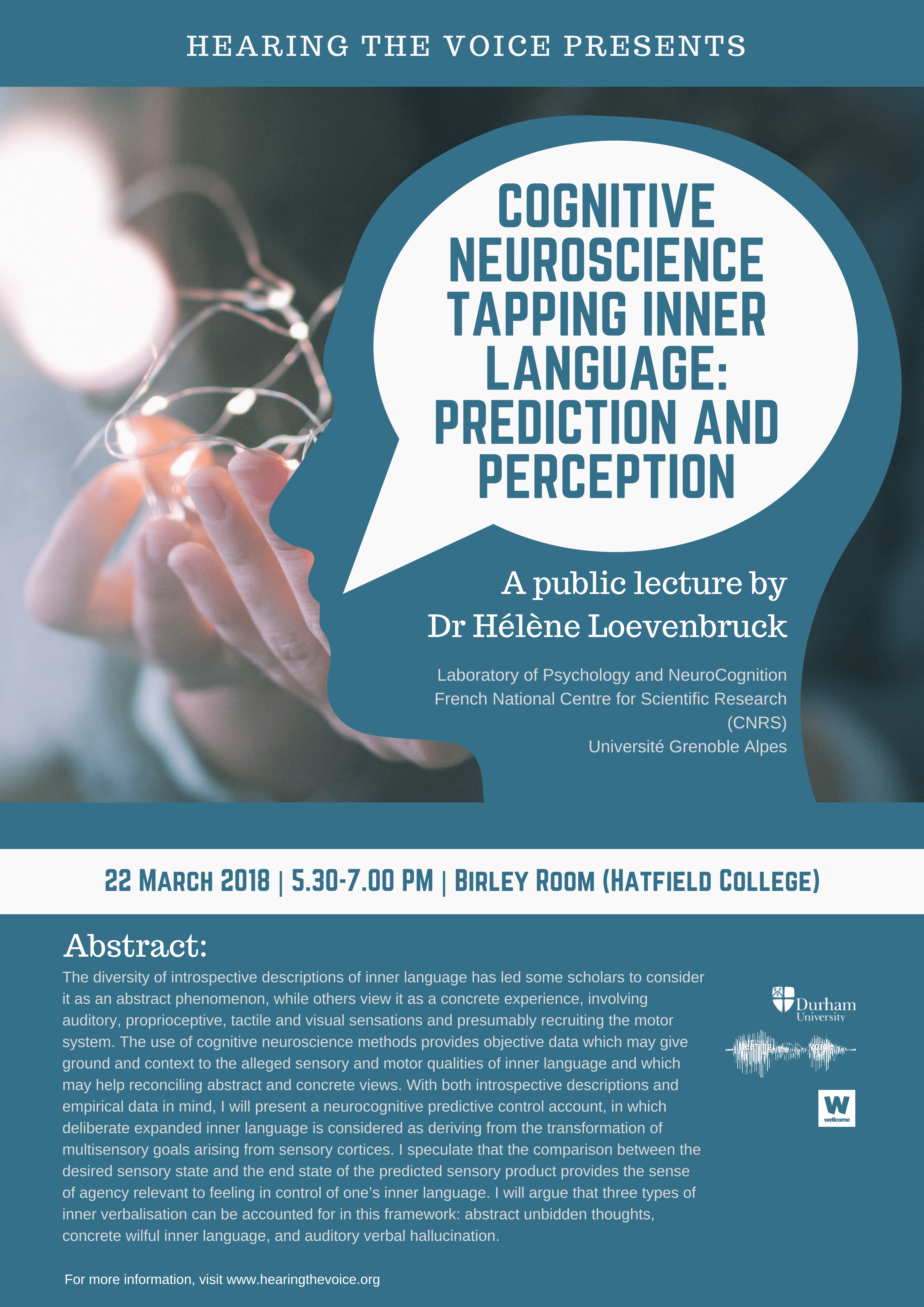Public Lecture by Dr Hélène Loevenbruck
Birley Room (Hatfield College) | Durham | Thursday 22 March 2018 | 5.30–7PM
On 22 March, Dr Hélène Loevenbruck (Laboratory of Psychology and NeuroCognition, Université Grenoble Alpes) will be giving a public lecture on ‘Cognitive neuroscience tapping inner language: prediction and perception’. The lecture will focus on neurocognitive predictive framework of inner language and auditory verbal hallucinations, and will take place from 5.30-7PM in the Birley Room (Hatfield College, Durham).
This event is free and all are welcome to attend. A full abstract can be read below:
Abstract
The diversity of introspective descriptions of inner language has led some scholars to consider it as an abstract phenomenon, while others view it as a concrete experience, involving auditory, proprioceptive, tactile and visual sensations and presumably recruiting the motor system. The use of cognitive neuroscience methods provides objective data which may give ground and context to the alleged sensory and motor qualities of inner language and which may help reconciling abstract and concrete views.
With both introspective descriptions and empirical data in mind, I will present a neurocognitive predictive control account, in which deliberate expanded inner language is considered as deriving from the transformation of multisensory goals arising from sensory cortices. An inverse model transforms this desired multisensory state into motor commands which are specified in motor regions and inhibited by prefrontal cortex. The efference copy of these motor commands is transformed by a forward model into simulated multimodal acts (inner phonation, articulation, gesture) which themselves provide predicted multisensory percepts (in the mind’s ear, tact and eye) that are processed in sensory regions. These predicted signals are perceived as an inner voice or sign unfolding over time. I speculate that the comparison between the desired sensory state and the end state of the predicted sensory product provides the sense of agency relevant to feeling in control of one’s inner language. I will argue that three types of inner verbalisation can be accounted for in this framework: abstract unbidden thoughts, concrete wilful inner language, and auditory verbal hallucination.


